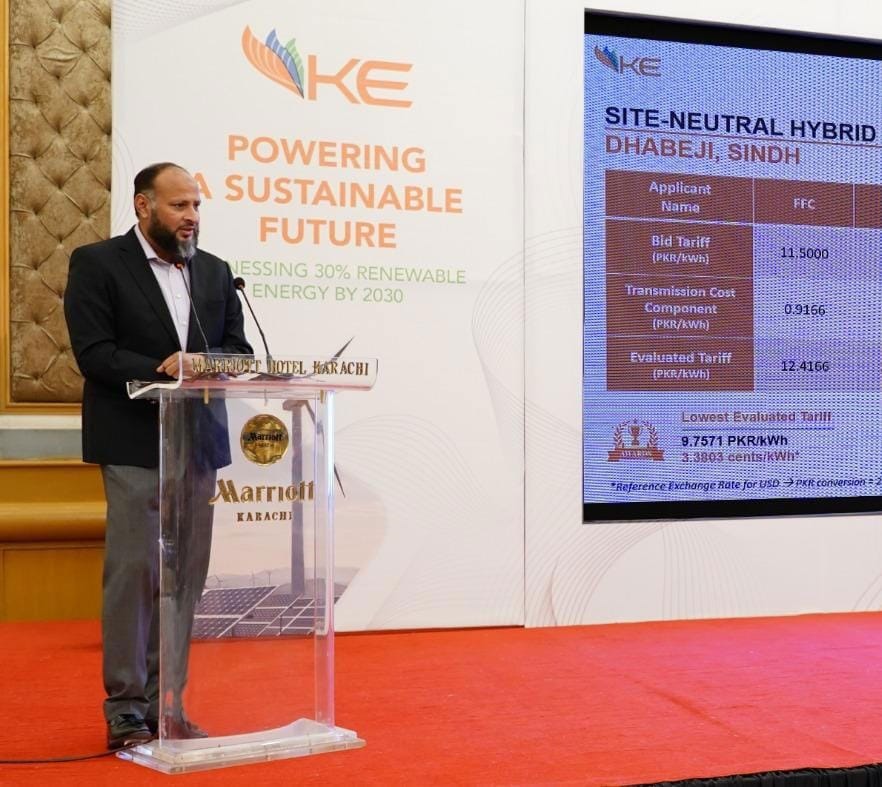In a groundbreaking development, K-Electric, has once again set a new precedent in the country’s renewable energy sector. Earlier this month, the company received seven bids for Pakistan’s first 220 MW hybrid wind/solar project in Dhabeji, Sindh. Building on this momentum, KE hit another major milestone by opening the financial bids at a private event in Karachi.
JCM Power, a Canadian renewable energy firm, emerged as the lowest bidder with a proposed tariff of PKR 8.9189 per unit, marking the lowest tariff ever for a renewable energy project in Pakistan. KE’s pioneering efforts in competitive bidding for renewable projects follow an approval from the National Electric Power Regulatory Authority (NEPRA) in the first half of 2024. The company is rapidly advancing its vision of a sustainable energy future, aiming to increase its renewable energy share to 30% by 2030.
The next step in this process is submitting the bid evaluation report to NEPRA for final approval. KE CEO Moonis Abdullah Alvi expressed his enthusiasm over the accomplishment, stating, “Alhamdulillah! We are thrilled to see such a competitive bid, made possible through a transparent process. Congratulations to the successful bidder. We are grateful for the investors’ continued confidence in KE and in Pakistan’s economic potential.”
Alvi also praised NEPRA for supporting the competitive bidding process, noting that the project aligns with KE’s vision of reducing generation costs and reliance on costly imported fuel sources. “With this tariff, we expect the government to pass the savings on to customers,” he added. Shahab Qader, KE’s Chief Strategy Officer, highlighted the technical significance of the project. “This is a landmark moment as KE once again pushes boundaries. The Dhabeji project is Pakistan’s first to integrate both solar and wind energy, offering enhanced operational and financial efficiency.
The technical demands of this project required deep expertise, and we’ve seen a tremendous response with 2960 MW in offers across our renewable projects in Winder and Bela, Balochistan, and now Dhabeji.” Qader emphasized that KE’s strategic approach to renewable energy is set to break Pakistan’s reliance on expensive energy sources, significantly lowering production costs and contributing to the country’s economic growth. With this project, KE is positioned to accelerate Pakistan’s shift towards cleaner, more affordable energy while reducing the nation’s dependency on imported fuel, a key driver of rising energy costs.










